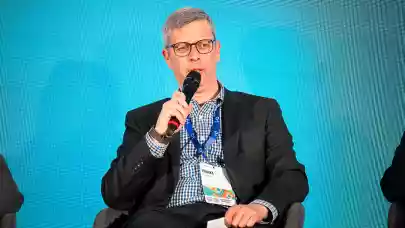
Poland’s largest cities only slightly adjust their planned investments due to the lower earnings caused by COVID-19. Similarly, zoning development plans are also not slowing down - as seen in talks between Urban Land Institute Poland (ULI Poland) and five cities involved in the project, “Around the city in 8 questions”. The series of discussions is expected to continue into the Fall, with another three meetings already planned.
The series, "Around the city in 8 questions", was implemented this year by ULI Poland, and involved five meetings with city mayors. Questions were directed to local authorities in Warsaw, Poznań, Gdynia, Katowice and Łódź. The meetings painted a picture of local governments, determined to continue with announced investments, despite the lower availability of funds. Each city is dealing with the situation – of more limited funding – differently. Warsaw announced plans to sell land and real estate to cover budget deficits; Katowice plans to issue bonds to finance the construction of their new stadium; Łódź is modernizing historic workers’ houses – built by Izrael Poznański under the Public-Private Partnership (PPP) formula; and in Poznań, the Aquanet Retention company will work to obtain 2 billion PLN worth of funding for investment related to rainwater retention.
Of course, these are not the only investments planned by these cities. Also of interest is the approach cities are taking to develop new space in favour of residents. For example, in Łódź, the Nowe Centrum project will revitalize the city while reducing the share of office buildings, promising more residential and commercial zones. At the same time, Katowice is replacing the KWK Wieczorek mine in the historic district Nikiszowiec, with a Gaming and Technology Hub. Gdynia is focusing on the development of their waterfront, as part of their “Sea City” concept, whereby post-port areas (making up around 71 hectares) will be transformed into more multifunctional downtown spaces. By 2023, Poznań will also allocate 92 million PLN to the revitalization of the Old Market Square.
“The pandemic has forced us to rethink our city development planning and strategy. UN-Habitat is working directly with local authorities and governments in planning and building more sustainable cities. In partnership with local authorities, we are also committed to better responding to modern world challenges – namely, climate change, which remains at the forefront of our attention. The World City Forum, scheduled for June 2022 in Katowice, promises to be a very good opportunity to strengthen our cooperation and exchange experiences,"- emphasized the Executive Director of the United Nations Human Settlements Program (UN-Habitat) Maimunah Mohd Sharif, who was a special guest at the first series of meetings.
In addition to investing in urban space, these cities are taking into consideration the future of their housing resources. Warsaw is allocating 609 billion PLN to the construction and modernization of 11 schools (175 new departments for 4.5 thousand students), 22 kindergarten facilities (119 departments for 3 thousand children), 15 nurseries, 9 municipal buildings, and 600 apartments. In turn, Łódź is planning 120 residential investments – equivalent to approximately 11,000 new apartments. In addition, the creation of up to 2,000 apartments is planned in Łódź, utilizing the PPP formula.
“Lack of housing has been a problem in Polish cities for some time now. While there are many reasons for this, exploitative foreign investment into rental properties has not been one of them. What's more - this activity can also be assessed from the perspective of normalizing markets, which shows that Poland’s structure is unfavourable for tenants. Certainly, we are pleased with government investment in municipal flats, of which we still have too little. ULI Poland looks to Scandinavian and Western European countries as models – there, new investments are designed in such a way that allows for some apartments to be rented or sold below market value, giving less affluent city dwellers a chance for improved housing conditions. Additionally, it prevents the formation of enclaves cut off from the rest of the city tissue,” says Dorota Wysokińska-Kuzdra, senior partner at Colliers, chairman of ULI Poland and member of the ULI Europe Executive Committee.

Dorota Wysokinska-Kuzdra
Senior Partner, Corporate Finance, CEE
Colliers
Importantly, city authorities are not forgetting to prepare spatial development plans, which indirectly furthers and sustains construction activity in the private sector. Currently, 40 per cent of Warsaw’s development is already planned and by 2023 this figure will reach 52 per cent. President Rafał Trzaskowski declared that by 2040 it will be 70 per cent. City officials have indicated that the functional transformation of industry and trade centres into an urban mix will be a priority. In addition, they will prioritize and ensure that urban development boundaries are set in line with solutions promoted by ULI Poland. On the other hand, Poznań is prioritizing the creation of service, educational, commercial, cultural and health centres. This falls in line with the concept of a 15-minute city, where everything you need can be found within walking distance. In Poznań, 51 per cent of the city is covered by spatial development plans.
“Looking at Poland’s largest cities, and keeping in mind modern solutions, we can see how much change successive spatial plans will be able to bring. Bearing in mind how time-consuming and complicated Poland’s legal realities are – (related to the development of new building conditions), we should appreciate this effort by local government officials and applaud all the changes that are aimed at making our metropolises resident-friendly,” adds Wysokińska-Kuzdra.
In implementing these recommendations, in Gdynia, they focus on supplementing the buildings with public space and greenery around new projects. Excluding forest areas and sea waters, the city is covered by 66 per cent with plans. Another 10 per cent will be covered in the next 4-5 years. In Katowice, the city hall is forming an action plan for the development and improved use of the city’s space. This scheme should be ready heading into 2022. Approximately 68 per cent of Katowice which is not constituting forest use, is covered by local plans. The situation is similar in Łódź, where the city centre is almost 60% planned, with 75 additional plans in the works, after which almost half of the city will be covered by plans. Łódź also wants to create protection plans in the city’s outer zones, to limit the phenomenon of uncontrolled development.
Issues related to re-urbanization will also be discussed by those attending this year’s ULI Poland Conference – to be held on October 6-7th. The conference will consider topics related to city investment in a post-Covid era, the future of so-called business districts, and approaches to living and working in modern cities. Many famous personalities from the real estate world will be in attendance - including Dutch artist, innovator and creator of social projects researching relationships between people, technology and space, Daan Roosegaarde; and Kalin Bracken, manager of the World Economic Forum’s real estate department, as well as the global community of directors.
“Around the city in 8 questions” - is a series of virtual meetings with Mayors of the largest Polish cities. The meetings primary purpose is to present the strategy, spatial policy, vision and mission of the city's development. They also enable open dialogue between city authorities and representatives of the real estate industry. During these meetings, discussions will be held about the city authorities’ plans to create safe, stable, environmentally sustainable, resistant to climate change and conducive to social inclusion, but also competitive and attractive urban centres for investors and young talents. Partners of the series are Greenberg Traurig, Mercer, ABSL, Globalworth, Skanska, Colliers, Cushman & Wakefield, DWF, Dentons, Echo Investment, Hines, MDDP and Vastint.



